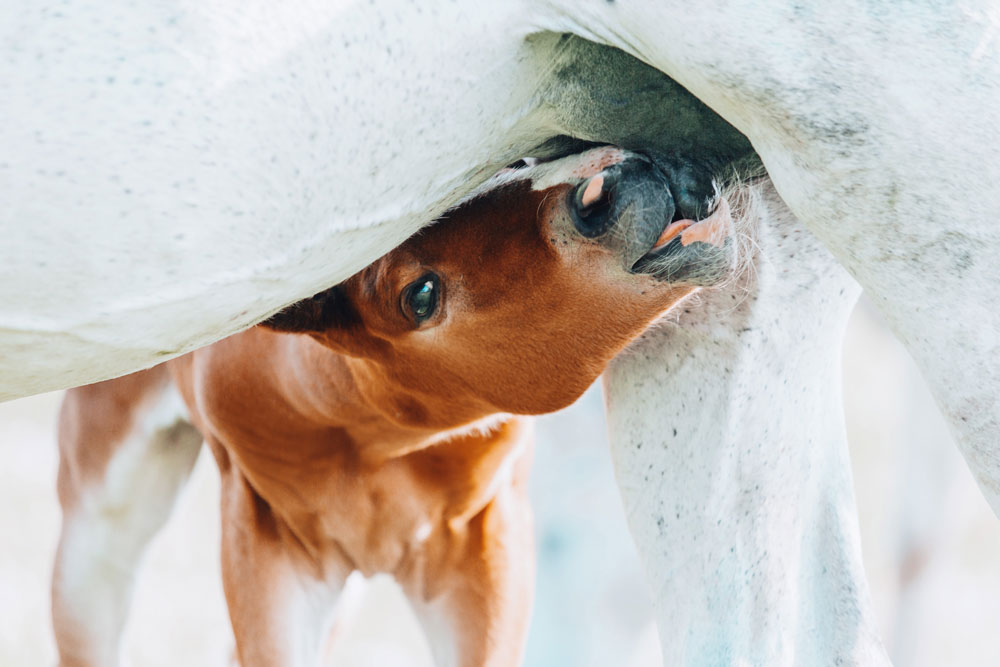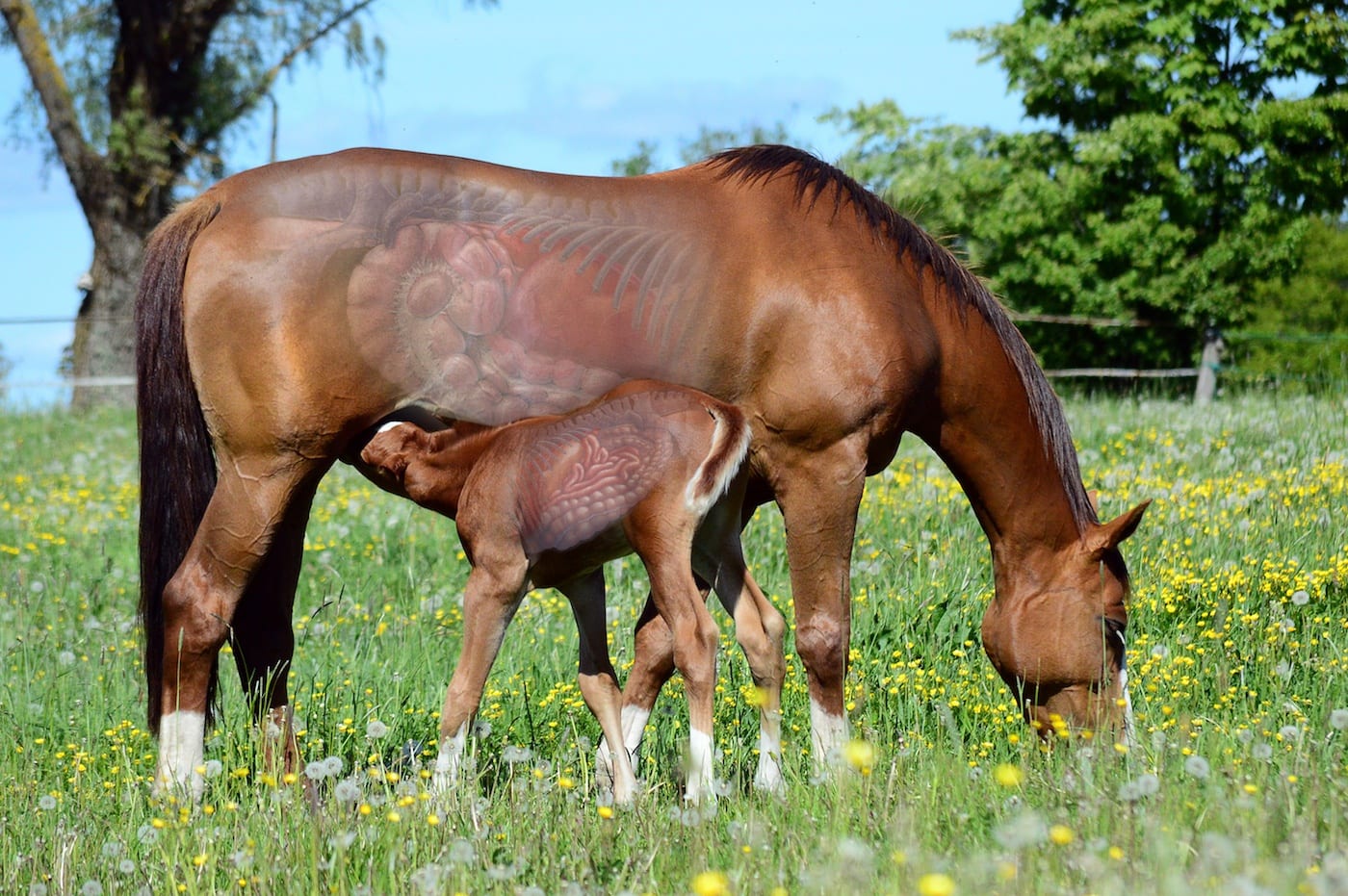A new study from the University of Surrey, UK has shed light on the vital connection between early gut health in foals and their future health and performance. While it’s long been understood that gut health is closely linked to overall well-being, this study breaks new ground by revealing just how crucial gut health in the earliest stages of a foal’s life is to long-term health outcomes and performance success.
The three-year study, which focused on Thoroughbreds bred for racing, tracked bacterial diversity in the gut by analysing faecal samples from day 2 through to day 365 of life. The results were striking: foals with lower gut bacterial diversity at 28 days were more prone to respiratory diseases, and those with prolonged lower diversity faced a higher risk of developing soft tissue and orthopaedic conditions later in life. Perhaps most notably, foals with lower bacterial diversity early on also showed a significant reduction in performance success, measured by lower official ratings, less prize money, and weaker finishing positions compared to their peers with higher diversity.
The Impact of Antibiotic Use in Early Life
The study also investigated the effects of antibiotic use in foals during the first 28 days of life. Researchers found that antibiotics negatively impacted gut bacterial diversity, but also correlated with an increased risk of respiratory disease and poorer long-term performance outcomes. This finding underscores the importance of cautious antibiotic use in the first few weeks of a foal’s life, where the development of a healthy and diverse gut microbiome is particularly vulnerable.
The Importance of Gut Microbial Diversity in Early Life
The study highlights that at the very least, the first 60 days of a foal’s life are crucial for the development of gut microbial diversity. During this time, the foal’s gut transitions from a sterile environment to one rapidly populated with a range of beneficial bacteria. This microbial development is essential for imprinting immunity, promoting optimal health outcomes, and supporting overall well-being throughout the horse’s life. Any disruption to the gut microbiota during this critical period can have long-lasting effects.
Foals face numerous challenges to gut health, from natural changes in gut development and shifts in their diet—starting with the milk microbiome and later transitioning to solid feeds—to the potential risks of infections and the effects of foal heat. Supporting the gut during these early weeks and months is critical to help young horses thrive and give them the best chance of long-term health and performance success.
How SUCCEED Supports Developing Foals
SUCCEED® Digestive Conditioning Program™ offers optimal daily support for developing foals, playing a vital role in nurturing a healthy and diverse microbiota. By improving gut structure, enhancing nutrient absorption, supporting the removal of pathogens, and boosting immunity, SUCCEED provides the foundation for strong health outcomes.
Given the profound impact that early gut health has on a horse’s future success, ensuring your foals receive the best possible digestive support should be a priority in every breeding program. SUCCEED helps pave the way for better performance by supporting the gut from day one, helping foals overcome challenges and grow into healthy, high-performing athletes.
Success Starts Early—Don’t Be Late
This groundbreaking study highlights just how essential early life gut health is for long-term performance and overall health. By incorporating SUCCEED into your foal management routine, you can give your young horses the best possible start, ensuring you are set up for success whether in the sales or on the track. Don’t let your foals fall behind—start their gut health care early with SUCCEED.
Refs
J. Leng, C. Moller-Levet, R. I. Mansergh, R. O’Flaherty, R. Cooke, P. Sells, C. Pinkham, O. Pynn, C. Smith, Z. Wise, R. Ellis, A. Couto Alves, R. La Ragione & C. Proudman (2024). Early-life gut bacterial community structure predicts disease risk and athletic performance in horses bred for racing, Scientific Reports 14: 17124




